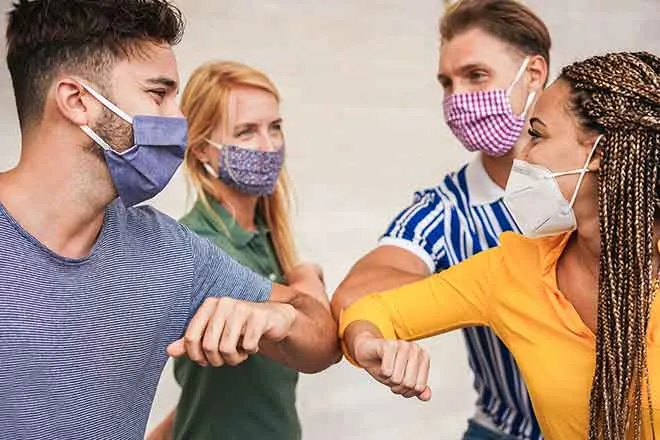
Daily Audio Newscast - June 25, 2025
© AlexLMX - iStock-823000260
Six minutes of news from around the nation.
U.S. strikes did not destroy Iran nuclear program, says Pentagon assessment; Dems join GOP to kill vote impeaching Trump over Iran strikes; Health gaps persist for American Indian, Alaska Native Coloradans; Alternative payment models better for WA patients, providers; New CT law ends election agency's independence.
Transcript
The Public News Service Daily Newscast June 25, 2025.
I'm Mike Clifford.
The US strikes on Iran's nuclear facilities did not destroy the country's nuclear program and probably only set it back by months, according to an early Pentagon intelligence assessment of the attack.
That's from the BBC.
They report the Islamic Republic's stockpile of enriched uranium was not eliminated in the bombings, sources familiar with an evaluation by the Defense Intelligence Agency told the BBC's US partner CBS.
The White House said the initial damage assessment was flat-out wrong and a clear attempt to demean President Donald Trump.
And from Axios, House Democrats joined with their Republican colleagues Tuesday against holding a vote to impeach President Trump for striking the Iranian nuclear sites unilaterally.
The House voted 344-79 on a GOP motion to table the article of impeachment.
Meantime, American Indian and Alaska Native communities in Colorado continue to face significant gaps in health care access quality and outcomes, according to a new analysis of the Colorado All Prayer Claims Database.
While these communities face higher rates of many chronic conditions, they're also not getting important preventative care.
David Wright with the Denver Indian Center says fear remains a primary barrier pointing to decades of mistreatment, including the forced sterilization of women and federal policies that forced medicine men and other spiritual leaders into mental asylums up until 1978.
Native people for a long time have been used to advance medical research without their consent.
And so there's a large mistrust within the Native communities against the medical profession.
Between 2018 and 2024, American Indian and Alaska Native people were diagnosed with kidney disease, autoimmune, nervous, metabolic, and endocrine disorders such as diabetes at rates far above their white peers.
I'm Eric Galatas.
And adopting alternative payment models for people receiving primary care through Medicare is better for providers and patients, according to a new report from the Bipartisan Policy Center.
The report says the current payment system rewards providers for volume of service rather than quality of care, encouraging costly tests and procedures regardless of outcomes.
Kendall Strong, a co-author of the report, says APMs, also known as value-based payment models, would reimburse providers for a broader range of services.
Obviously, including meeting with patients, but also for primary care clinicians, coordinating care, submitting referrals, making sure their patient can get wraparound care to really help with all their care.
Washington, with about 1.5 million people on Medicare, is already in the process of shifting towards APMs.
Strong says the state serves as a model for others to do the same and can provide insights into how to scale local systems up to a federal level.
I'm Isabel Charlay.
This is Public News Service.
A new law in Connecticut ends the independence of the state's State Election Enforcement Commission.
Senate Bill 1405 limits SEEK's ability to do post-election audits and lets the General Assembly choose the agency's executive director.
Good government groups worry this will infuse partisanism into a traditionally nonpartisan agency.
Sherry Quickmire with Common Cause Connecticut says there must be independent accountability for lawmakers.
Without the independence of the oversight agency, legislators aren't basically able to do what they think they should be doing with their campaigns without any oversight.
This also strains the Citizens' Election Program, which prevents many candidates for elected office from taking money from special interest groups, along with CEP candidates not having to do their own fundraising.
It would also reduce the number of candidate reviews SEEK can do.
Initially, SEEK was required to perform audits on all candidate committees, but that was reduced to 50 percent over the years.
The new law cuts it down to 20 percent.
I'm Edwin J. Vieira.
And Minnesotans are cooling off after last weekend's extreme heat, but communities that bear the brunt of environmental injustice say there'll be more climate extremes to contend with, prompting heightened outreach.
Researchers say the harmful effects of climate change is one of the drivers behind Latino populations migrating to the Midwest.
Destructive wildfires brought Josefina Geronimo from California to Minnesota.
She acknowledges the move doesn't mean extreme weather events and other environmental harms are gone.
She says her family is still prepared in case they're forced to evacuate.
Extra pair of clothes, you know, water bottles, maps, flashlights, you know, kind of an emergency to-go bag.
It isn't just those preparations on her mind, since Geronimo is a leader on the Environmental Justice Committee for Minnesota's Communities Organizing Latino Power in Action, or COLPA.
The panel is trying to foster more grassroots conversations about topics such as air pollution disproportionately harming Latino neighborhoods and an equitable transition to clean energy.
I'm Mike Bowen.
And finally, federal tax credits from the Inflation Production Act are fueling big growth in Tennessee's battery supply chain.
The volunteer state has become a major hub in battery production with 11 manufacturers in the state.
For example, in Clarksville, LG Chem is investing $1.7 billion in a facility to produce cathode materials for electric vehicle batteries.
Zane Fishman with the Bipartisan Policy Center's Energy Program says clean energy tax credits are driving investments in Tennessee's battery industry.
We've really seen a resurgence in battery manufacturing in the U.S. and in Tennessee in particular with factories coming online.
It's a sector that has been dominated by China.
The volunteer state has attracted more than $5 billion in clean energy investments and created 6,700 new jobs since 2022.
I'm Danielle Smith.
This is Mike Clifford for Public News Service.
Member and listener supported.
Find your trust indicators at publicnewsservice.org.
















